Error message
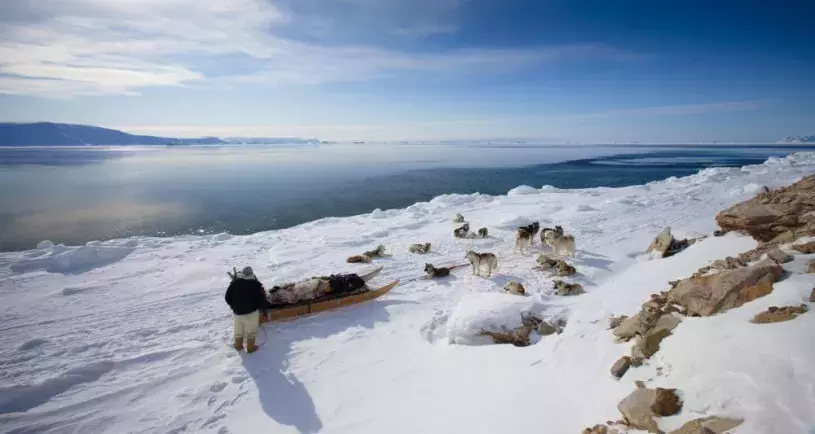
OFFICE/DEPARTMENT
Each year since 2011, a diverse group of Arctic specialists, officials, researchers, practitioners, policymakers, private-sector representatives, and Indigenous Peoples and other community leaders from a variety of countries have met at the East-West Center in Honolulu for wide-ranging discussions on Arctic issues, with a particular focus on the North Pacific region. A common thread running through all the conferences over the years has been the importance of sustaining the Arctic as a zone of peace and prosperity in a rapidly changing and often turbulent world.
Organized by East-West Center and supported by the Korea Maritime Institute, the North Pacific Arctic Conference, offers participants the opportunity to engage in off-the record discussions to identify Arctic issues on the horizon, consider ways to frame these issues for policy action, and explore the pros and cons of major topics on the Arctic agenda. The emphasis is on a vigorous exchange of views rather than formal paper presentation.
Why the North Pacific?
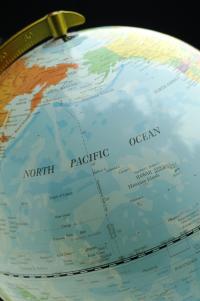
The “new” Arctic is defined by increased levels of human and biophysical interaction due to new technologies and changes brought by a climate that is warming at more than twice the rate of the global average. These changes have allowed use of new sea routes and have opened the Arctic to more intense exploitation of minerals, fossil fuels, and fish, as well as to increased geopolitical competition. Arctic climate and ocean changes also raise fundamental questions regarding the biophysical sustainability of the planet as a whole.
While NPAC draws on global expertise, the conferences take a particular interest in relations among both the Arctic states (Canada, Russia, and the United States) and the principal non-Arctic states of the North Pacific region (China, Japan, and South Korea), with the underlying purpose of promoting broad public awareness of critical challenges and developing productive international networks to address them.
As NPAC begins its second decade, the umbrella theme for the 2020s is “The Arctic in Planetary Dynamics,” acknowledging that the Arctic is intertwined with global environmental, economic and geopolitical processes. Over the course the next several years, NPAC will examine the state of science, technologies and innovation in achieving a sustainable Arctic; the challenges of effective governance through the Arctic Council and other organizations; and transformation of Arctic communities in a time of rapid socioeconomic and environmental change.
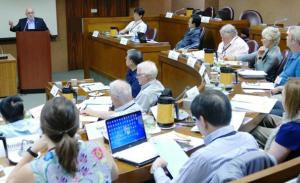
NPAC Fellows
From the conference’s inception, it was clear that helping to foster a new generation of Arctic leaders was a critical component. Since 2017, NPAC has supported the participation of selected early and mid-career NPAC Fellows who bring fresh perspectives and insights to the meeting. In turn, their Arctic networks are strengthened and they interact substantively with more senior Arctic specialists and each other—the emerging generation of Arctic leaders.
2020 Virtual Conference
The COVID-19 pandemic forced the tenth anniversary NPAC meeting to go virtual with a remote conference on the theme: Will Great Power Politics Threaten Arctic Sustainability? In sessions held at various times over several days in October, 45 participants from Northern Europe, North America, Russia, Korea, Japan, and China met online, despite sessions being held in the middle of the night in some locations.
Due to reduced travel and lodging costs, the conference was able to accept 12 NPAC Fellows funded by the National Science Foundation and several Asian institutions. This not only increased the reach of the program but also provided a critical mass of new intellectual content and energy.
Related Publications
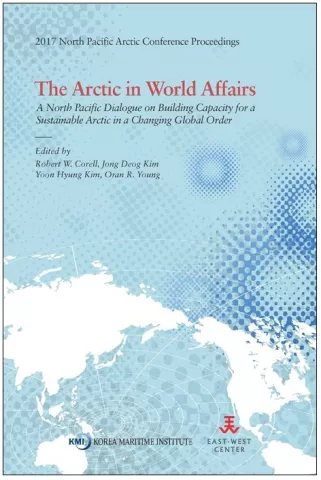
The Arctic in World Affairs
Presentations from each year’s conference are published in a book-length volume as part of the KMI/EWC Arctic in World Affairs series. Each edition focuses on a different theme based on the conference’s aim of approaching complex and sometimes difficult maritime Arctic issues in a spirit of cooperative problem-solving.
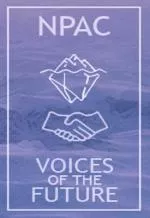
Voices of the Future
At the conclusion of the 2020 virtual conference, the Fellows were invited to write forward-looking, policy oriented articles for a special web series: NPAC Voices of the Future. The series is intended provide a forum for the diverse new generation cadre of thought leaders who will be needed to help address the immense challenges facing the Arctic.
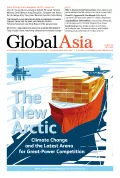
Global Asia
The December 2020 issue of the East Asia Foundation journal Global Asia featured a collection of nine articles by NPAC presenters under the heading: The New Arctic: Climate Change and the Latest Arena for Great-Power Competition. The cover story describes a "fast-emerging region that is attracting greater attention on issues as varied as international shipping, resource extraction and even geopolitical ambitions. It remains, of course, at the center of discussion about the threat of climate change."
Each year since 2011, a diverse group of Arctic specialists, officials, researchers, practitioners, policymakers, private-sector representatives, and Indigenous Peoples and other community leaders from a variety of countries have met at the East-West Center in Honolulu for wide-ranging discussions on Arctic issues, with a particular focus on the North Pacific region. A common thread running through all the conferences over the years has been the importance of sustaining the Arctic as a zone of peace and prosperity in a rapidly changing and often turbulent world.
Organized by East-West Center and supported by the Korea Maritime Institute, the North Pacific Arctic Conference, offers participants the opportunity to engage in off-the record discussions to identify Arctic issues on the horizon, consider ways to frame these issues for policy action, and explore the pros and cons of major topics on the Arctic agenda. The emphasis is on a vigorous exchange of views rather than formal paper presentation.
Why the North Pacific?

The “new” Arctic is defined by increased levels of human and biophysical interaction due to new technologies and changes brought by a climate that is warming at more than twice the rate of the global average. These changes have allowed use of new sea routes and have opened the Arctic to more intense exploitation of minerals, fossil fuels, and fish, as well as to increased geopolitical competition. Arctic climate and ocean changes also raise fundamental questions regarding the biophysical sustainability of the planet as a whole.
While NPAC draws on global expertise, the conferences take a particular interest in relations among both the Arctic states (Canada, Russia, and the United States) and the principal non-Arctic states of the North Pacific region (China, Japan, and South Korea), with the underlying purpose of promoting broad public awareness of critical challenges and developing productive international networks to address them.
As NPAC begins its second decade, the umbrella theme for the 2020s is “The Arctic in Planetary Dynamics,” acknowledging that the Arctic is intertwined with global environmental, economic and geopolitical processes. Over the course the next several years, NPAC will examine the state of science, technologies and innovation in achieving a sustainable Arctic; the challenges of effective governance through the Arctic Council and other organizations; and transformation of Arctic communities in a time of rapid socioeconomic and environmental change.

NPAC Fellows
From the conference’s inception, it was clear that helping to foster a new generation of Arctic leaders was a critical component. Since 2017, NPAC has supported the participation of selected early and mid-career NPAC Fellows who bring fresh perspectives and insights to the meeting. In turn, their Arctic networks are strengthened and they interact substantively with more senior Arctic specialists and each other—the emerging generation of Arctic leaders.
2020 Virtual Conference
The COVID-19 pandemic forced the tenth anniversary NPAC meeting to go virtual with a remote conference on the theme: Will Great Power Politics Threaten Arctic Sustainability? In sessions held at various times over several days in October, 45 participants from Northern Europe, North America, Russia, Korea, Japan, and China met online, despite sessions being held in the middle of the night in some locations.
Due to reduced travel and lodging costs, the conference was able to accept 12 NPAC Fellows funded by the National Science Foundation and several Asian institutions. This not only increased the reach of the program but also provided a critical mass of new intellectual content and energy.
Related Publications

The Arctic in World Affairs
Presentations from each year’s conference are published in a book-length volume as part of the KMI/EWC Arctic in World Affairs series. Each edition focuses on a different theme based on the conference’s aim of approaching complex and sometimes difficult maritime Arctic issues in a spirit of cooperative problem-solving.

Voices of the Future
At the conclusion of the 2020 virtual conference, the Fellows were invited to write forward-looking, policy oriented articles for a special web series: NPAC Voices of the Future. The series is intended provide a forum for the diverse new generation cadre of thought leaders who will be needed to help address the immense challenges facing the Arctic.

Global Asia
The December 2020 issue of the East Asia Foundation journal Global Asia featured a collection of nine articles by NPAC presenters under the heading: The New Arctic: Climate Change and the Latest Arena for Great-Power Competition. The cover story describes a "fast-emerging region that is attracting greater attention on issues as varied as international shipping, resource extraction and even geopolitical ambitions. It remains, of course, at the center of discussion about the threat of climate change."

